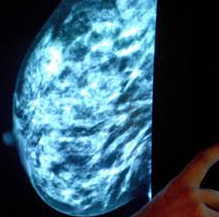
Ambitious AI Trial Set to Improve Diagnosis Speed and Alleviate Radiologist Workload
The NHS is embarking on the largest-ever trial of artificial intelligence to detect breast cancer, with the potential to drastically speed up diagnoses and reduce the burden on radiologists.
Over the next few years, AI will be employed to analyse approximately two-thirds of 700,000 mammograms in England. The goal is to determine whether AI can match the accuracy and reliability of radiologists when interpreting these scans.
If the trial is successful, it could eliminate the need for two radiologists to review every mammogram as part of the “second reader” system, which ensures no signs of cancer are overlooked. Instead, a single radiologist could review the scan, with AI providing a second opinion. This change would help ease the strain on specialist doctors, enabling them to focus on other critical tasks while potentially reducing patient waiting times for results from tests like X-rays and MRIs.
The announcement of the trial came on World Cancer Day, alongside the news that a new dedicated cancer strategy is being developed by the Department of Health and Social Care (DHSC) to improve cancer diagnosis and treatment.
A smaller AI study in Sweden, conducted in 2023 and involving 80,000 women, demonstrated that AI is safe, helps reduce radiologists’ workloads by 50%, and does not increase the occurrence of false positives (incorrectly identifying cancer).
In the UK’s forthcoming trial, five types of AI will be used to analyse 462,000 of the 700,000 mammograms from 30 breast cancer screening centres. The remaining 238,000 scans will be reviewed by two radiologists using the traditional method, with the results of both approaches compared.
“This trial represents a significant step forward in early breast cancer detection, providing women with faster, more accurate diagnoses,” said Professor Lucy Chappell, the DHSC’s Chief Scientific Adviser. The study is supported by £11m in funding from the National Institute for Health and Care Research.
Cancer Research UK’s Samantha Harrison highlighted the growing number of cancer diagnoses each year, noting that innovations such as AI could alleviate pressure on NHS staff and reduce waiting times for patients. She expressed enthusiasm for the UK government’s investment in this critical trial.
While the potential for AI to ease the demand on diagnostic services is immense, Professor Katharine Halliday, President of the Royal College of Radiologists, cautioned that AI must be carefully designed to deliver consistent, reliable results across diverse groups of women, regardless of their ethnic background. She also pointed out that AI’s widespread integration into the NHS must be handled with caution, given the expected shortfall of consultants in the NHS, which is projected to reach 40% by 2028.
Health Secretary Wes Streeting, in light of the trial, reaffirmed his commitment to publishing a detailed national cancer plan, aiming to position the UK as a global leader in cancer survival.










